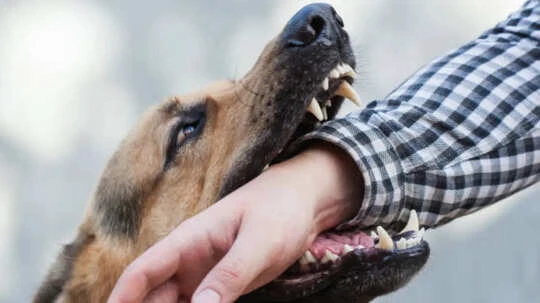In a disturbing case in Madhya Pradesh, a 14-year-old school-going boy, bitten by a stray dog, died of rabies despite taking a vaccine and undergoing medical treatment after the attack.
According to doctors, the teenager from Rewa, identified as Nitin, was returning home from school when the incident took place.
His family members rushed him to the hospital, where he was given an anti-rabies injection to save him from the deadly virus. “His body was shivering; he was behaving like a dog,” the NDTV reported, quoting a close relative of the young victim. Despite getting first aid and treatment, the family has questions over the boy’s tragic demise.
Rewa Collector Pratibha Pal has ordered an inquiry into the incident.
According to news reports, this is not a one-off incident, as six people-two women and four men across the stahave mysteriously died despite taking the rabies vaccine. All animal attack victims were aged above 40 years of age.
What is rabies?
Rabies, or RABV, is transmitted through direct contact, like broken skin or mucous membranes in your eyes, nose, or mouth, with saliva or brain and nervous system tissue from an infected animal. Doctors say rabies is always fatal, but it can be prevented.
It spreads to people and pets if they are bitten or scratched by a rabid animal.
The rabies virus gets into your body when the saliva or spit of an infected animal gets into an open wound, usually from a bite. It moves very slowly along nerves into your central nervous system-your brain and spinal cord. When it reaches your brain, the damage causes neurological symptoms.
From there, rabies leads to coma and death.
Can rabies treatment fail?
Experts believe that occasionally, rabies treatment may fail despite advancements in medical science. In many such incidents, people have not responded well to rabies treatment despite immediately receiving PEP.
Doctors say such incidents demonstrate the value of continued study and education about the prevention and treatment of rabies.
According to experts, it is rare that one can possibly die from rabies, which may typically happen due to a failure of the post-exposure prophylaxis, or PEP, or other factors like severe exposures or delayed treatment. A few other reasons behind this can be:
- The rabies virus attacks the nervous system, and once symptoms appear, it becomes extremely difficult to stop the progression of the disease.
- Bites or scratches at dense nerve endings, like your face and hands, lead to a faster progression of the disease.
- If your treatment gets delayed, or if the wound has not been cleaned properly and disinfected, the virus may have more time to spread.
- Rabies Immune Globulin, or RIG, is a passive immunization that provides immediate, but temporary, protection. If RIG is not administered or if there are issues with its availability, the risk of vaccine failure can increase.
